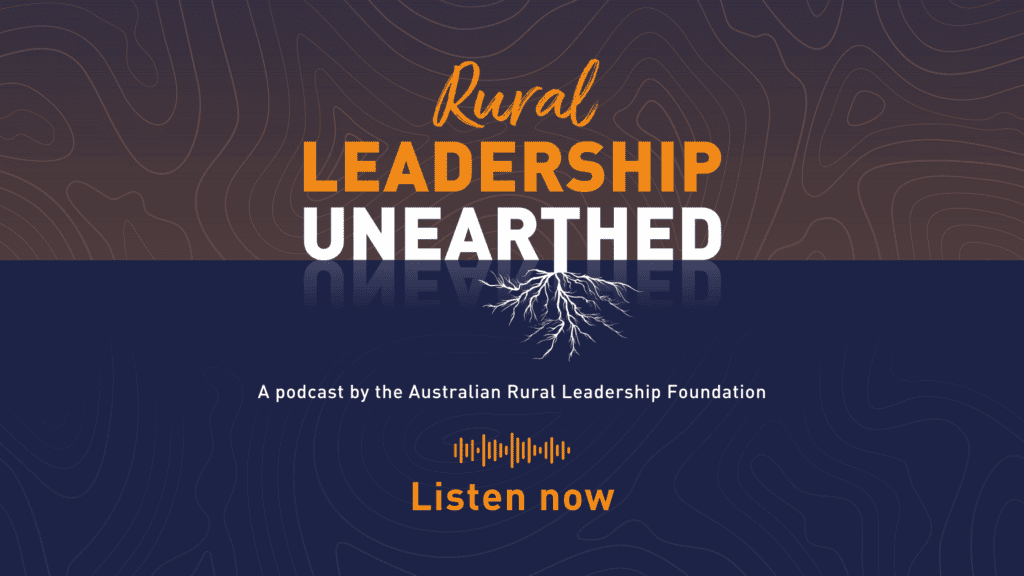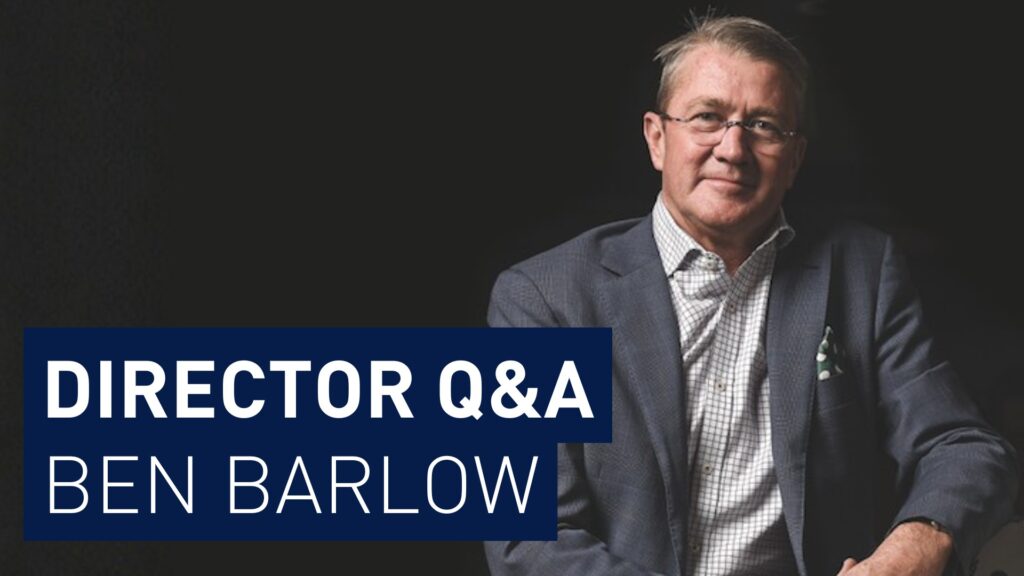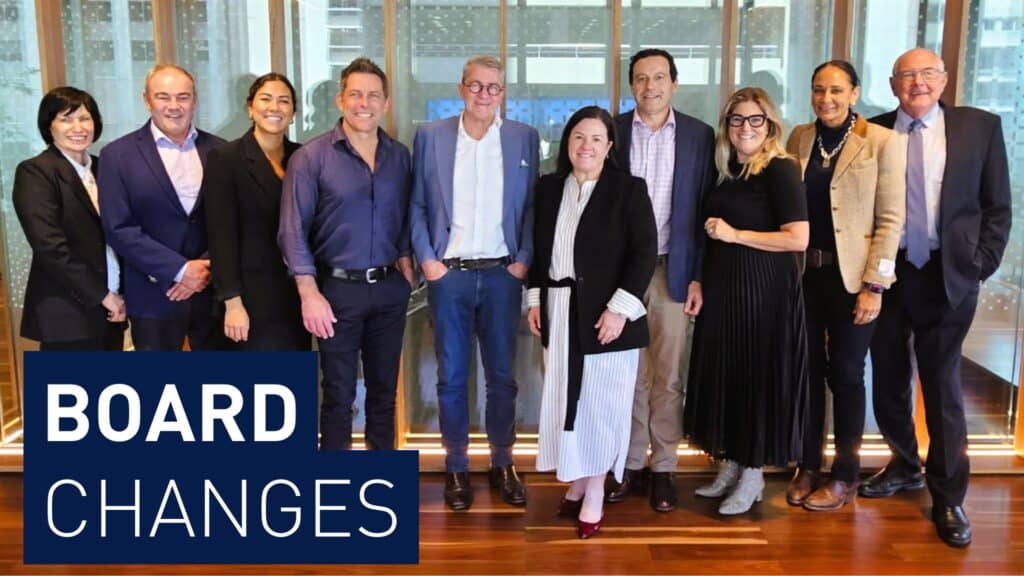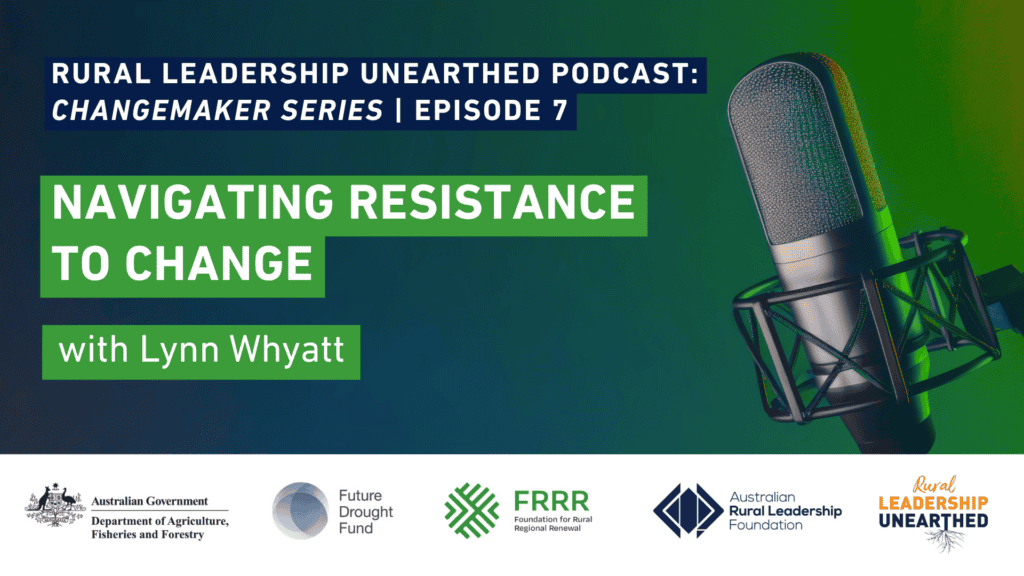From suburban Sydney to a career in agriculture, Oli Le Lievre has let his curiosity and passion guide him to the frontline of reshaping the narrative about this complex and compelling sector.
Having experienced a range of roles on the land in Australia and overseas, and within the agri-corporate world, Oli has faced-down doubt and inner-conflict to start a remarkable movement. And it all centres around his conviction that stories are the key to reconnecting people with where food and fibre comes from, while growing a positive conversation that we can all be a part of.
Today, Oli is at the helm of a thriving media business that is revealing agriculture in full colour. He is a graduate of three programs delivered by the Australian Rural Leadership Foundation:
-
- Course 28 of the Australian Rural Leadership Program, through an open Alumni Scholarship
-
- The NFF 2030 Leaders Program, in partnership with the National Farmers’ Federation
-
- The NFF Broader Networks Mentoring Program, in partnership with the National Farmers’ Federation
Sitting down with our host, Claire Delahunty, for the latest episode of the Rural Leadership Unearthed podcast, Oli chats about what leadership means to him, and shares the path to embracing his role as a champion for agriculture.

Claire Delahunty: Do you mind just introducing yourself and telling us a bit about where you live and a bit about what your day-to-day looks like?
Oli Le Lievre: Yeah, I absolutely can Claire. I’m down here in Geelong. We’re on Wadawurrung country. This is home now.
As you mentioned, a few years ago, I founded what is now a company. It was really just an idea back in 2019, called Humans of Agriculture. It was all about, how do we shape and share the stories of people involved in agriculture to create stronger connections between people involved in agriculture with each other, but also people outside of agriculture? How do we understand the influence of the role of agriculture in the world today, and what it will look like in the future? For me it’s really been built off curiosity to somehow have been able to build a business. We’ve got a little team that’s fuelling my curiosity to understand who are the different people involved in agriculture? What are their stories? What is the role of it today? And what is the significance of agriculture and who and what’s it going to take to kind of take us there?
They’re probably the questions in a nutshell that we try and answer day to day. And we just sit down with different people, find out their stories, tap into their knowledge and insights and see where it goes. Every day is different, which is fantastic and I kind of love that chaos.
CD: As you said, Humans of Agriculture started as an idea and it’s grown across platforms. But before we do get into exploring that, I’d love to go back and get into your formative years. You didn’t grow up with rural life all around you or easy access to agriculture, did you?
OLL: Something I’ve been fortunate to learn through Humans of Agriculture – and I know [ARLF CEO] Matt Linnegar is one of these people as well – who I guess grew up outside of agriculture and then found themselves working within it. Matt’s path evolved more broadly into the rural/regional space. There are actually lots of people that have grown up in our city areas and have then gone on to have significant roles and influence in agriculture, but also in rural regional and remote Australia.
For me, my childhood was pretty incredible. I love sport. I’m one of four kids. I grew up about 25km north of Sydney’s CBD. And we were just on the edge of Ku-ring-gai Chase National Park. We had huge bushlands not too far from home. I was an avid mountain biker. I enjoyed my rugby and yeah, I guess just had plenty of friends. Holidays were always spent being fairly active if we were in Sydney or fortunately, I got to head down to Victoria to what was mum’s sister’s property, which is only about 45 minutes from where I sit now. So I guess I’ve always had a connection to Geelong and this region down here. And it has probably felt a little bit more like home than Sydney. Sydney always kind of felt like it was a temporary place. It was fantastic. I loved it. I had the beaches, as I said, was right into my mountain biking; had siblings, it was a pretty awesome childhood and something that I’m very fortunate to have experienced.
CD: What were the steps that you took in planning your years fresh out of school?
OLL: Straight out of school and from the age of 15 or 16, agriculture was the thing I wanted to go and do, but to me, agriculture was just the farming side. I was looking through The Land newspaper, found a job advertised for a property down in Harden in southwest New South Wales and applied for that straight out of school. I actually ended up going there with another mate who was pretty ag-mad. So these two Sydney boys headed off and we went jackarooing straight out of school, which was an incredible experience. It was so much fun, but I did want to go and study. And I think through school, there was definitely a push that the university education was important. I got a place in Ag Economics at Sydney University. So I deferred that for my first year out of school while I went jackarooing. And from there I went back after a year out and started studying.
From there, I started to understand that the course at Sydney Uni probably wasn’t quite suited to me. I probably wasn’t mature enough at the time to pursue it. And I think that’s something I can look back on in hindsight and go, you know what, like when you finish school, you’ve just spent 12 years studying, you’re still very young, you have very little exposure to the world. You can take time to go and experience things. It probably took me really six or seven years to go and do that. I ultimately end up getting a degree. And yeah, that false start that I had at Sydney Uni, I studied there for 18 months, not very well. And then when I was looking for an out, I applied to Marcus Oldham and got accepted and then decided that the time was right to go back, spend another six or eight months farming and then go and study at Marcus at the beginning of 2014.
CD: Did you start to get an idea once you were learning more about the many facets of ag about what impact you wanted to have on the space?
OLL: To be honest, I’d say probably not. I don’t know if it was a factor of the environment that I grew up with or not, or the network of people I knew. To me, that was agriculture, the farming side. Then once I went to Sydney University, it seemed pretty straightforward: You go and get a university degree and then you end up as some sort of trader in a commodity of sorts or you go down a finance pathway.
I think even within the bounds of the university, the understanding of the opportunities within the sector was still really limited and probably sticking to those traditional pathways. And I guess just by being in different parts and being willing to change and having conversations with people right from when I was at Marcus Oldham, it started just to create opportunities for me.
I decided to take a year off midway through the degree and go and work in Canada with a bunch of friends on what was a family owned farm over there, which was really interesting. I think that was probably one of those moments where it started to broaden my perspectives in terms of the role that agriculture plays more broadly. Understand some of the similarities that we have with other people, especially in other developed countries, but also some of the differences as well. Once I finished my studies, I’d applied for what was a graduate position. It was only a temporary one, but it was in horticulture projects. It was down that commodity trading path, but it was very different to probably what other people did. And they just gave me greater exposure to the fresh produce growers. It gave me exposure to the commodity; to the currency traders; to the international traders. I was fortunate to be looking after the pack house and logistics side of things for the export business and was definitely thrown in the deep end.
And that’s probably something in my career. I’ve just taken on some opportunities before I was ready for them and kind of just – I don’t even know if ‘back myself’ is the right word – but I’ve kind of just gone after it and thought, “oh, well, it’ll work itself out or someone will kind of help me through”.
CD: And in ag there’s a range of scholarships and programs, and you seem to have certainly embraced putting your hand up for those things. When did you start to fit in the puzzle pieces that would develop parts of you or give you some new skills along the way?
OLL: So for me, falling down the professional development side, it was purely just right place at the right time. I was working for a business, which was an early stage agtech company at the time, they were actually based out of Geelong. Working in a small team, trying to sell an agtech product to farmers was an interesting experience, But it took me right across the country and in 2018, I was up in Rockhampton for Beef Australia.
I’d never heard anything about the National Farmers Federation or anything. I was kind of looking at the program and saw that Fiona Simson was talking about this 2030 vision, for the industry. And so I went and sat in there and she mentioned that there was going to be a series of workshops and road shows that were happening across Australia to understand from people within the sector, what’s happening, how does the national peak body then work with government to create a vision for what the sector can be out to 2030?
And so purely by chance, I was privy to that conversation. When I came back, the business I was in at the time said absolutely, go and take the day off and go to that workshop. And I didn’t go in with any intentions or anything else except for just being in a room and listening. After that, I became far more strategic about how I networked, what I’d go to, what rooms I was in, how was I going to get opportunities for myself by being in those areas or be able to actually contribute.
And I think what that initial workshop had was that the National Farmers Federation had brought together a hugely diverse group of people over in Gippsland. And what I realised from that is that if you’re not having input and you’re not involved in the conversations, you actually then can’t sit on the sidelines and take a position or complain or provide feedback. If you really want to play a role and see something succeed, you need to be involved.
Fiona Simson saw the need to start to engage a whole new demographic of people within the conversations and the development in Australian agriculture. And so not only just increasing the involvement of women, it was also young people and off the back of that was the, the initial 2030 leaders program. And I thought I’d apply for it.
Fortunately, I was one of eight people in that first program. For me, that was the very first vote of confidence. And up until that stage, I’d second guess myself that I was this kid from Sydney that yes, I was passionate about agriculture, but I wasn’t from a farm, I didn’t live in a country area. I was living in Geelong. What kind of contribution can I have to the industry? But the validation that I got and that kind of external vote of confidence really was that beginning push that I needed to go, “you know what? You do have something to contribute to the sector. You’re passionate enough about it. You’re actually willing to put your hand up and be involved”. And from that, I guess that has been the beginning of what has been a really cool journey, in leadership and professional development and also personal development as well.
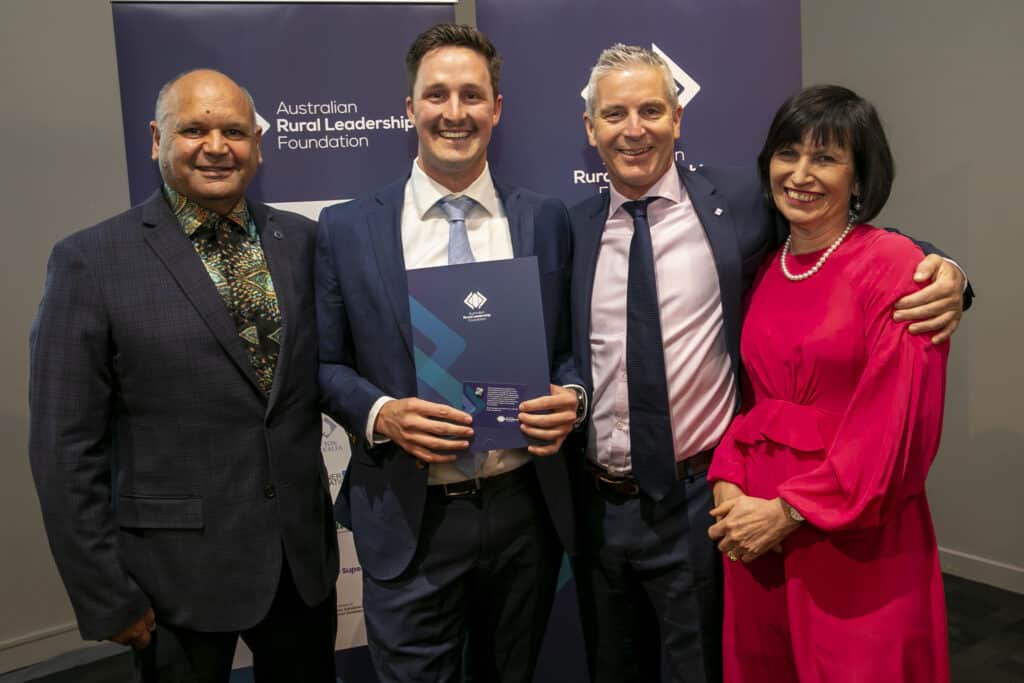
CD: Were you comfortable with the word leader? It can be uncomfortable stepping into that space where you think you have to say ‘I am a leader’.
OLL: Yes, it is very uncomfortable. And I just don’t know if maybe I’m title averse. Like I don’t think I’d ever stand up and go, “oh, I’m a leader” or even in the work I do now say “I’m a storyteller”. I think at the end of the day this is what I do. I do things because I’m passionate about it. I do it because there’s something that I can contribute that is going to benefit others, and then also try and contribute to something bigger than myself.
So, they’re probably the main drivers behind me. I think in terms of that title of leadership, the more I’ve learned about it, there’s so many different ways that you can exercise that. It’s not always that traditional thought of being the person out in front and running. And to me, now that I can look back at it, the way that I was really leading in that 2018/19 period was literally leading by being in the room and contributing and providing feedback. And it wasn’t the person that had to lead the conversation to facilitate the discussions. It was literally just being involved. Just being part of it, being part of the conversation.
CD: When you got to that ARLP experience, you were 28, and there’s a whole spectrum of ages doing that program. But how was it for you coming in at that time in your life and in your career where you’re sort of very much still exploring and figuring stuff out?
OLL: So the first program I did – that 2018 program, which was facilitated by the Australian Rural Leadership Foundation – it brought together the whole range of different people of different ages. I think there were moments that helped me realise that at any stage, no matter your age, you actually do have something to contribute by just being yourself. And you’ve also got something to learn at any age.
What came from that was that the way I saw things was not the same way that someone else was seeing it. And that was really important to have those discussions.
Flowing into the next piece that I was involved in was a mentoring program between maybe 10 or 15 people that were involved. It was following another cohort of that 2030 leaders program that they came up with a mentoring initiative. It was formal mentoring that went over six months, and I was partnered up with another ARLP alumni, Tim Collins, and he was working over in Western Australia at the time on quite a significant infrastructure project.
For me, I was learning a hell of a lot, I was living in lockdowns, which was a really quite significant period of my life. And I would have talked to Tim about different things that I was seeing in the workplace; how I wanted to maybe provide some feedback, and things that were challenging me. He was able to come at it from a lens of his lived experience. But then also I was able to provide to Tim some insights of maybe how younger people were thinking of things. And I believe that there were things he actually took from the conversations that we had that benefited him in his workplace interactions as well. So I think the learnings that I’ve had is in all of these ages, it’s about experiences. It’s about perspective. And that’s where the diversity of people, of backgrounds, of ages, of all of that is just so important.
CD: Do you want to talk a little bit about how the threads of Humans of Agriculture were floating around in the background as you were doing all this? How was it all coming together as you were being mentored, putting yourself into these conversations and having some ideas about a structure around what you wanted to do next?
OLL: In Australia at the time, we were having these conversations talking about alternative proteins overtaking the livestock sector and everything’s kind of doomed. I thought, well actually, if we just get outside our bubble for a few minutes then we understand that people at the bare essentials actually do really want to be involved in agriculture, they have a fundamental connection to it. And every single day people need to eat.
And so I thought how do we actually bring some perspective into the conversation and bring in people from different backgrounds and just understand how is agriculture influencing their life? Why are they involved in it or why do they want to be involved in it? It was really tapping into that cultural piece within agriculture. I started a social media page, thinking that if we could focus on the human aspect, we’d be able to share stories that would connect and resonate with people. I’d always wanted to start a podcast for it. The part which was holding me back from that was that I didn’t necessarily want this to be about myself. And I also didn’t want to create a target on my back from it.
At the beginning of 2020, I was talking to Brianna Casey, and she did the ARLP when she was incredibly young. She just said, well, all the things that you’re grappling with, every leader has grappled with at some stage. If you’re willing to do it, just get on with it. And if there’s going to be negativity or if there’s going to be any of that, just deal with it when it comes up, but don’t not do something out of fear.
So I bit the bullet. At the beginning of February in 2020, I sat down and recorded my first episode and then sat on it and did nothing. And then in mid-March of 2020, the world as we knew it changed. I had a whole lot more time as a 26/27-year-old than I’d ever had before. I decided, well, I’m not gonna get the chance to go out and network with people, why don’t I just sit down for a kind of coffee conversation with them and start to release a different podcast?
The Humans of Agriculture journey has always been about “how do I learn, how am I engaged, what am I curious about, and how am I trying to develop for myself?” The beauty of the podcast is it’s become, in essence, a new mentor every single week that I get to sit down with. And in every conversation we have, there’s always something that I’m trying to get out of that person. There’s an area which I’m trying to learn about through their experiences. I think that’s probably like the secret sauce is that everything has come from a genuine place of interest in a person.
At the end of the day, we want to stay truly authentic to where and what we began. Incredibly today, I can still say that in every single one of our partnerships, we own 100% of the content, we own the conversation, the style, the things that we’re trying to do. It’s all driven by us and it’s in a way that’s actually benefiting businesses and organisations in the agriculture sector, but it’s also staying true to who we are.
CD: It would be great to hear some of your reflections on how it has evolved and how you’ve managed to keep it connected to that core foundation you had when you started.
OLL: Something that is probably worth touching on is that there’s some negatives as well that people probably aren’t privy to. We always said we’ll work our backside off and say ‘yes’ to things and then we’d kind of work it out the next step.
One of the most challenging parts in it was in that mid-COVID period, I relocated and changed jobs. I was chatting to Angus Street, the CEO of Auctions Plus about it. I knew that I was seeking a bit of advice from him. In the back of my head, I was looking at pursuing Humans of Ag full-time, but I was definitely a bit too early and naive on it. He actually offered me a role with Auctions Plus that I took, and it was such a good opportunity to learn. While I was at Auctions Plus I had a unique experience. Being able to balance a full-time role as well as Humans of Agriculture, it was incredibly easy when we were in lockdowns and there were no distractions.
When the world started to go back to normal, and I just started to work harder and harder, stay up later, sleep less, fall into bad habits, not exercise, not eat well, in order to pursue this thing.
At Auctions Plus, I went through a period where I started to lose confidence in myself within that role. At the same time, Humans of Agriculture was building momentum. Over the next few months I started to have conversations with people outside of work about needing to make a decision. Humans of Agriculture was fantastic, it was something that I’d pursued and grown but at the end of the day, it wasn’t paying the bills. I needed to decide, do I want to build a corporate career and a career in agriculture or do I want to do Humans of Agriculture?
What then happened over the next few months with some really frank and candid conversations which gave me the confidence I needed external to myself. I genuinely believe that I could make something of it, but hearing someone else say “mate, you’ve got nothing to lose, at the end of the day, if you go and give it a crack, if it doesn’t work out, you’re still employable, and you will have learned something”.
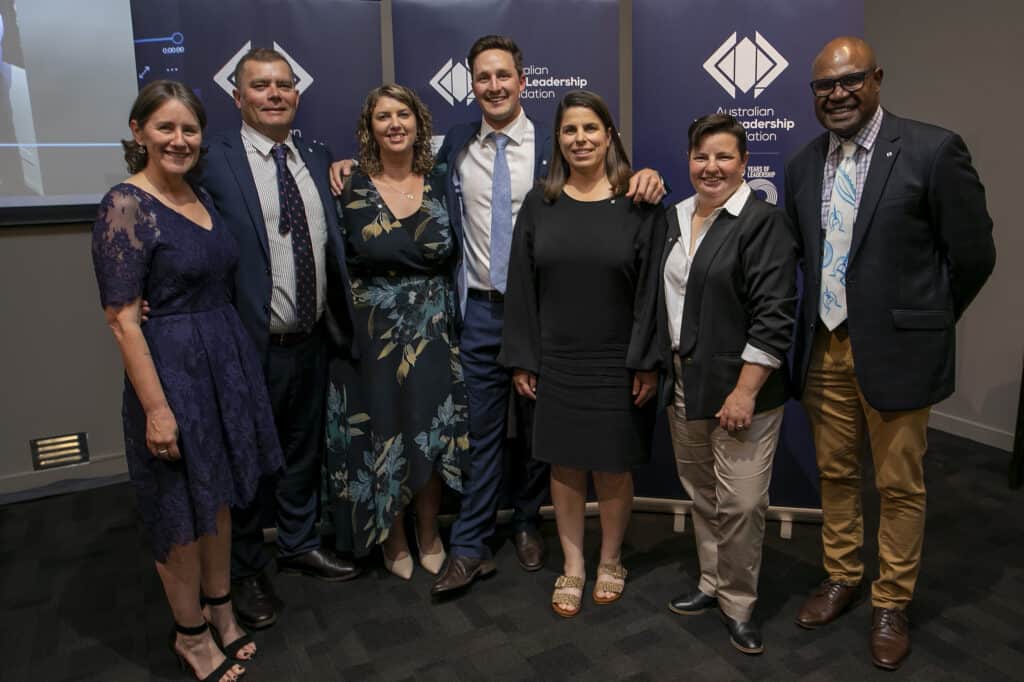
CD: It sounds like you are always pretty receptive to tapping into those voices around you that you respect. Is that right? Networks are a pretty key part of how you go along and cope with things that might be challenging you or might be giving you a few sleepless nights?
OLL: Hugely. People always talk about being hardest on themselves, but something I picked up as I was going through different programs, especially the Australian Rural Leadership Program, was actually how I can be my biggest barrier. I’m incredibly self-critical on myself and I hold myself to a standard that’s probably unrealistic at times.
What I’ve learned from that is the person that’s most detrimental to is myself. I don’t see it at the time. I think I’m just looking for excellence and continual improvement, but actually what it does is hold me back. That’s where having those mentors and that network around has actually given me the most important thing, I’ll say in my life – definitely professionally – has been that ability to get out of my own head and go, “okay, is the stuff that I’m saying about myself true? Or is the story that Oli’s telling himself actually not the real story?” And I think that’s the really fine balance between self-awareness and being self-critical. In a personal sense, what I’ve done in the last year was actually to go and seek professional help to talk about those things in both a personal and professional environment, but with a psychologist. Because for me, I’m incredibly self-aware, but that line between self-improvement and blowing myself up or leading myself into a really negative pathway is a really fine line.
CD: It’s something that conversations are getting louder around, so it’s great to hear you bring it up personally. It’s enmeshed, isn’t it, in the people you’re talking to day to day through your work with Humans of Ag that the mental health conversation looks different for everybody. It sounds to me like a good way for you to be always steering by some core values. Is that how it ties in with your personal and professional life?
Oll: Yeah, absolutely. And I think it’s fantastic to see the change that is happening in and around the mental health conversations. I think globally the statistics around people feeling lonely is kind of startling. It’s north of 40% of people say that they experience feeling lonely pretty regularly, which is crazy to think given how ‘connected’ we are. It’s something that we’ve been able to play a little role in. We’re not a mental health service or anything, but when we ran our community survey last year, one of the pieces of feedback we got was that sometimes the Humans of Agriculture podcast is the only other voice that someone will hear during the day. For us, knowing that we’re a familiar voice that can keep someone company when they’re working fairly remotely is something really special to be part of.
CD: I was going to ask you about that recent survey you’ve done and the insights you’ve got into your audience… What is important about who you’re reaching and what’s the key to what it then might give them in terms of new information or shifting the mindset or just sparking an idea?
Oli: When it comes to what people are genuinely interested in, there is a real movement around health and wellness. There is a real interest in sustainability and climate. And there is a genuine interest in agriculture rural living. Sometimes it’s a little bit more romanticised, but there is a play there in agritourism as well. Things like [ABC series] ‘Muster Dogs’ is one of the highest rating shows that has been played on Australian television. And that’s fundamentally an agriculture show. You look at the success of ‘Yellowstone’ abroad and the likes of Bella Hadid, who I think has 61 million people following her. She was camp drafting cattle the other day. There is a real interest and a move where agriculture and the lifestyle that surrounds it has become really ‘on trend’.
Country music is in. These are all things which we can use positively to help support the conversations and awareness around the things that matter in agriculture. I’m looking at all those different societal influences that are conversations that we can tap into. It’s stuff that people in agriculture are going to care about, but also people outside of agriculture are going to be interested in it.
We all knew there was a disconnect – 83% of Australians have a distant or non-existent connection to farming. I thought, well, if we just share farming stories aimed at tapping into that urban audience, we’ll solve the problem. But there was actually a real problem around the confidence of people within the sector and a willingness to share their stories. That comes from a lack of trust in mainstream media. It comes from a lack of confidence. It comes out of fear.
How Humans of Agriculture has evolved is from asking “how do we create that supportive environment first and foremost that we are part of the agriculture sector?” We are here alongside people. We want to empower people with their stories. We want to showcase the sector as being positive and progressive while also getting curious about having discussions around some of those more difficult aspects. We want to do it in a way that we can shake those narratives and stories, and that’s going to be relevant to a much broader audience.
CD: What’s next for you, and what are some of the goals you want to get some traction on?
OLL: I want to build a legacy where, if I was removed from the business tomorrow, it can continue, because I think the impact we’re having for the industry, for the sector, and for the people that work within us is something without which the sector would be worse off.
We’re only really at the beginning of that journey… The impact that we can have is going to be far greater than me. That’s going to come through empowering people within our business; helping support the people within the agriculture sector to share their stories and do it in a way which is relevant to society today where they can digest and learn and engage with agriculture in a way that is going to shape a better future.
Oli’s story is one chapter of a larger narrative of ARLP change-makers and visionaries who are helping to reshape our rural, regional and remote communities.
Find out more about the program visit our website.
You can download this podcast episode or play it on demand through all good podcast platforms.



